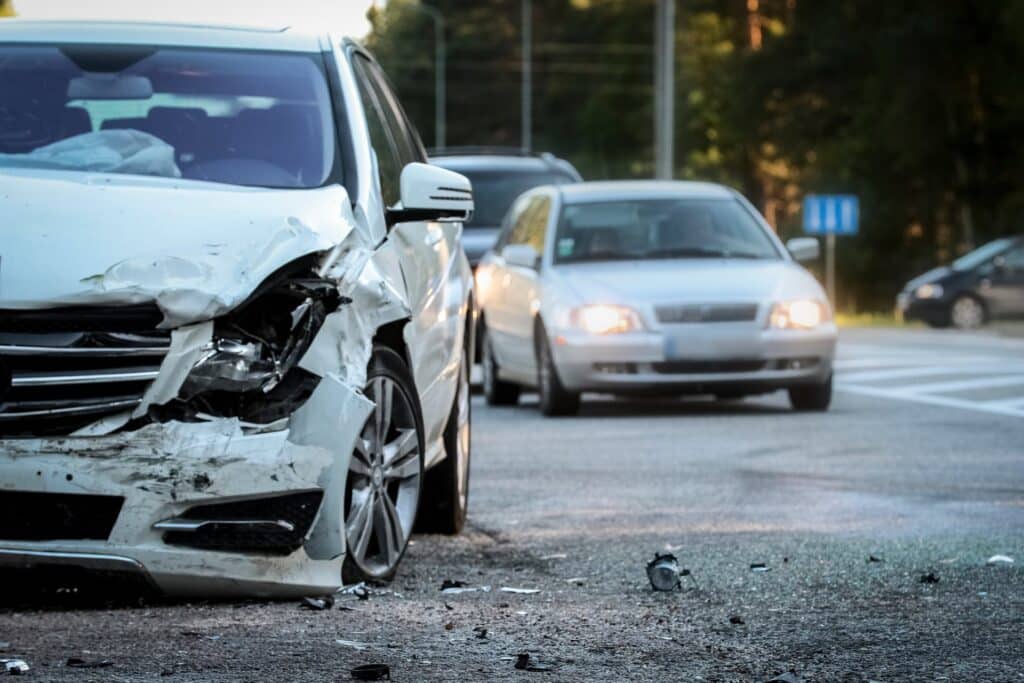Car accidents are scary. Mistakes made in a fraction of a second can cause catastrophic injuries that affect the rest of your life. What’s worse, the mistakes that caused the accident may not have even been your fault, which means you must now rely on the legal process to receive the compensation you deserve to recover.
What follows is an examination of the laws surrounding auto accidents in Washington and how fault is determined in the courts. We’ll explain the options available to you, such as mediation and litigation. Then, we’ll discuss the pros and cons of each approach, helping readers make an informed decision based on their unique circumstances.
However, with every case, it’s important to talk with an auto accident attorney about the specifics of your situation. Seeking legal help is essential to understand your situation better and determine the best option for your needs and goals. At NBF Accident Law, we are not your typical personal injury lawyers. If you need an advocate who will listen better, fight harder, and bring more passion and effort to your case, call us.
Comparative Negligence in Washington State
Washington State uses the “pure” comparative negligence system, which is a method to determine the amount of compensation a victim can recover in a car accident claim.
Basically, if you are found to be at fault in an accident, it doesn’t stop you from recovering compensation in Washington. However, the amount of compensation you can receive will be reduced by your percentage of fault. As a simplified example, let’s say you are 30% at fault for an accident, and the damage to your car amounts to $10. You would only be able to recover 70% (or $7) of those damages. The other 30% is reduced because of the amount you were found to be responsible for the accident.
If multiple parties are at fault, each party’s liability is proportionate to their percentage of fault. So, if one driver is 60% at fault and another is 40% at fault, they would be liable for those portions of the total damages. The totals always equal 100%, so when more people are at fault, it distributes the responsibility accordingly. This means that accidents that involve multiple vehicles are less likely to blame only one person for the damage.
In court, after all evidence is presented, the jury will determine the percentage of fault for each party involved. Once those percentages are decided, the total compensation awarded will be adjusted accordingly. This comparative negligence rule also applies to insurance claims. An insurance adjuster will determine your level of fault when calculating how much they believe you are owed.
Some states, like Oregon, bar a plaintiff from collecting compensation if they are found to be more than 50% at fault, but Washington State does not. Even if you are 90% at fault in Washington, you can still recover 10% of your damages. However, it’s important to note that you can also be held financially responsible for the portion of damages you caused to others.
Resolving Personal Injury Disputes: Mediation vs. Litigation
Personal injury disputes, like those following an auto accident, can be resolved in a couple of different ways. The most common are mediation or litigation. Understanding the differences between the two is crucial for making the best decisions about your case. Which one you choose is up to you, and NBF Accident Law can assist in both cases.
Important Definitions
Litigation is the legal term for regular court proceedings. Settling a dispute in a court of law involves both parties presenting their cases to a judge or jury for a fair assessment of comparative negligence. The trial entails court fees and lengthy wait times, and the final verdict is typically non-negotiable.
Mediation is an alternative method to finding an agreement between parties. It involves an impartial mediator who assists in the resolution. Both parties mutually agree to the settlement based on careful negotiations that take each side into account. Choosing mediation doesn’t eliminate the possibility of litigation later on, but it aims to avoid the legal fees associated with a full trial.
Litigation Pros & Cons
Litigation results in legally binding decisions that can only be changed through an appeal. It serves as a means to hold the defendant publicly accountable and may result in penalties like punitive damages. On the downside, trials can be lengthy and expensive. The process can be emotionally taxing for both parties involved. The adversarial nature of litigation makes for a less cooperative and predictable outcome. Additionally, the case details become public records, which might not be preferable for parties seeking privacy.
Mediation Pros & Cons
Mediation offers a faster, more cost-effective alternative to litigation. One of its primary benefits is that it grants victims a more significant say in determining the outcome. This fosters a sense of empowerment and control over your auto accident case. However, mediation comes with its own set of challenges. There’s no guarantee of a favorable outcome, as the resolution relies on the agreement of both parties. This means that the at-fault party has more influence over the resolution, which might make securing fair compensation a more difficult task.
Factors to Consider When Choosing a Resolution
- Set Your Goals: Understand what you want from the resolution before it begins.
- Understand the Challenges: Identify obstacles in settling with the defendant, like your percentage of fault or their willingness to negotiate.
- Set Your Level of Control: decide how much influence you wish to have over the final verdict. While some may prefer direct involvement, others might be open to ceding some control for a quicker or less confrontational resolution.
- Consider the Cost: It’s important to know the financial and emotional resources you’re prepared to invest in the process. This includes considering legal fees, time commitments, and the potential emotional toll.
Choosing between mediation and litigation in personal injury cases is no small decision. Understanding the unique aspects of each method is the best way to make an informed decision that best suits your circumstances. At NBF Accident Law, we know every auto accident case is unique, and we’re ready to assist you in what comes next. Call us today at (206) 923-8888 and let our personal injury lawyers assist you in getting the justice you deserve.








